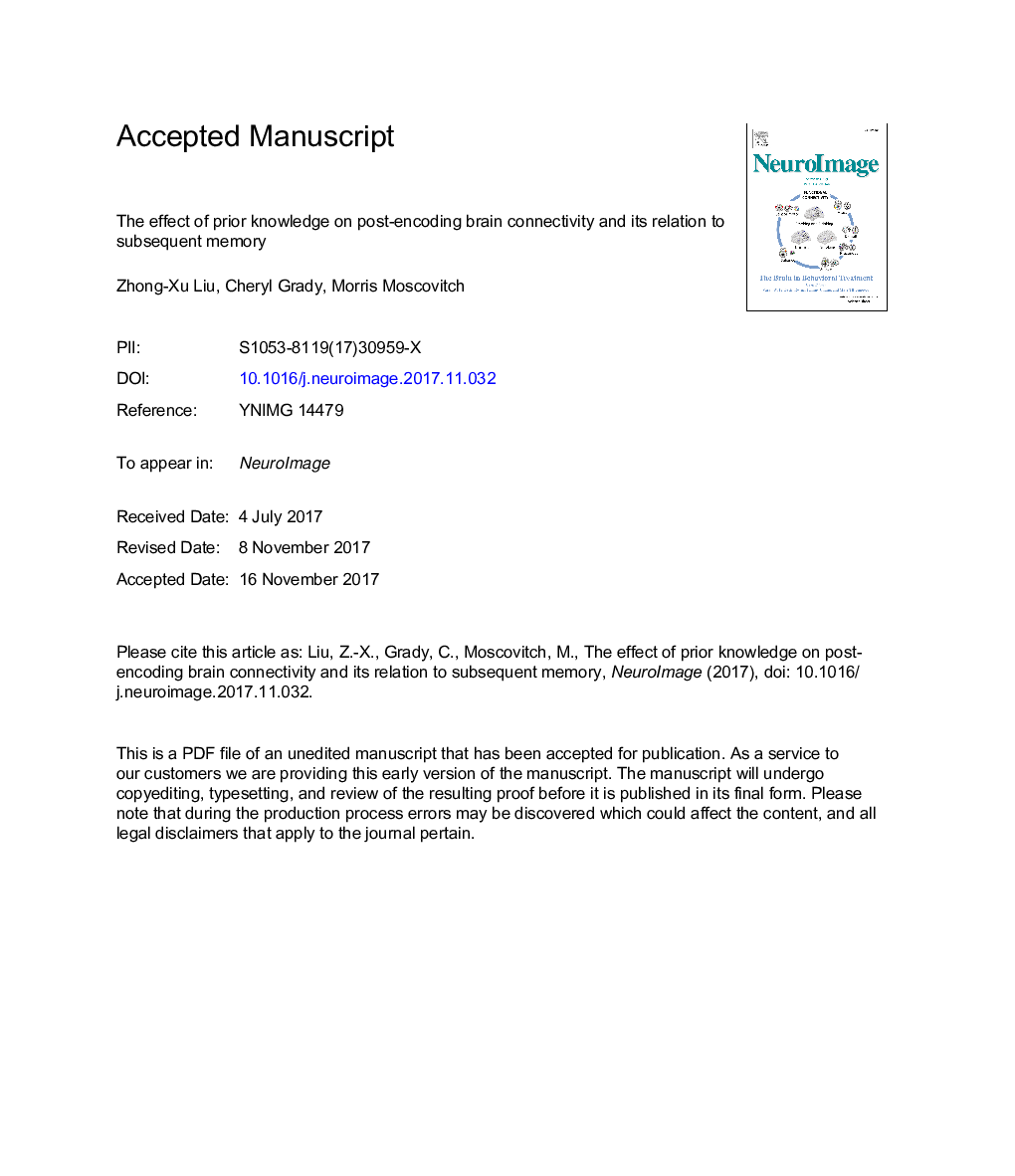| Article ID | Journal | Published Year | Pages | File Type |
|---|---|---|---|---|
| 8687288 | NeuroImage | 2018 | 55 Pages |
Abstract
It is known that prior knowledge can facilitate memory acquisition. It is unclear, however, whether prior knowledge can affect post-encoding brain activity to facilitate memory consolidation. In this fMRI study, we asked participants to associate novel houses with famous/nonfamous faces and investigated how associative-encoding tasks with/without prior knowledge differentially affected post-encoding brain connectivity during rest. Besides memory advantages in the famous condition, we found that post-encoding hippocampal connectivity with the fusiform face area (FFA) and ventral-medial-prefrontal cortex (vmPFC) was stronger following encoding of associations with famous than non-famous faces. Importantly, post-encoding functional connectivity between the hippocampus (HPC) and FFA, and between the anterior temporal pole region (aTPL) and posterior perceptual regions (i.e., FFA and the parahippocampal place area), together predicted a large proportion of the variance in subsequent memory performance. This prediction was specific for face-house associative memory, not face/house item memory, and only in the famous condition where prior knowledge was involved. These results support the idea that when prior knowledge is involved, the HPC, vmPFC, and aTPL, which support prior episodic, social-evaluative/schematic, and semantic memories, respectively, continue to interact with each other and posterior perceptual brain regions during the post-encoding rest to facilitate off-line processing of the newly formed memory, and enhance memory consolidation.
Related Topics
Life Sciences
Neuroscience
Cognitive Neuroscience
Authors
Zhong-Xu Liu, Cheryl Grady, Morris Moscovitch,
